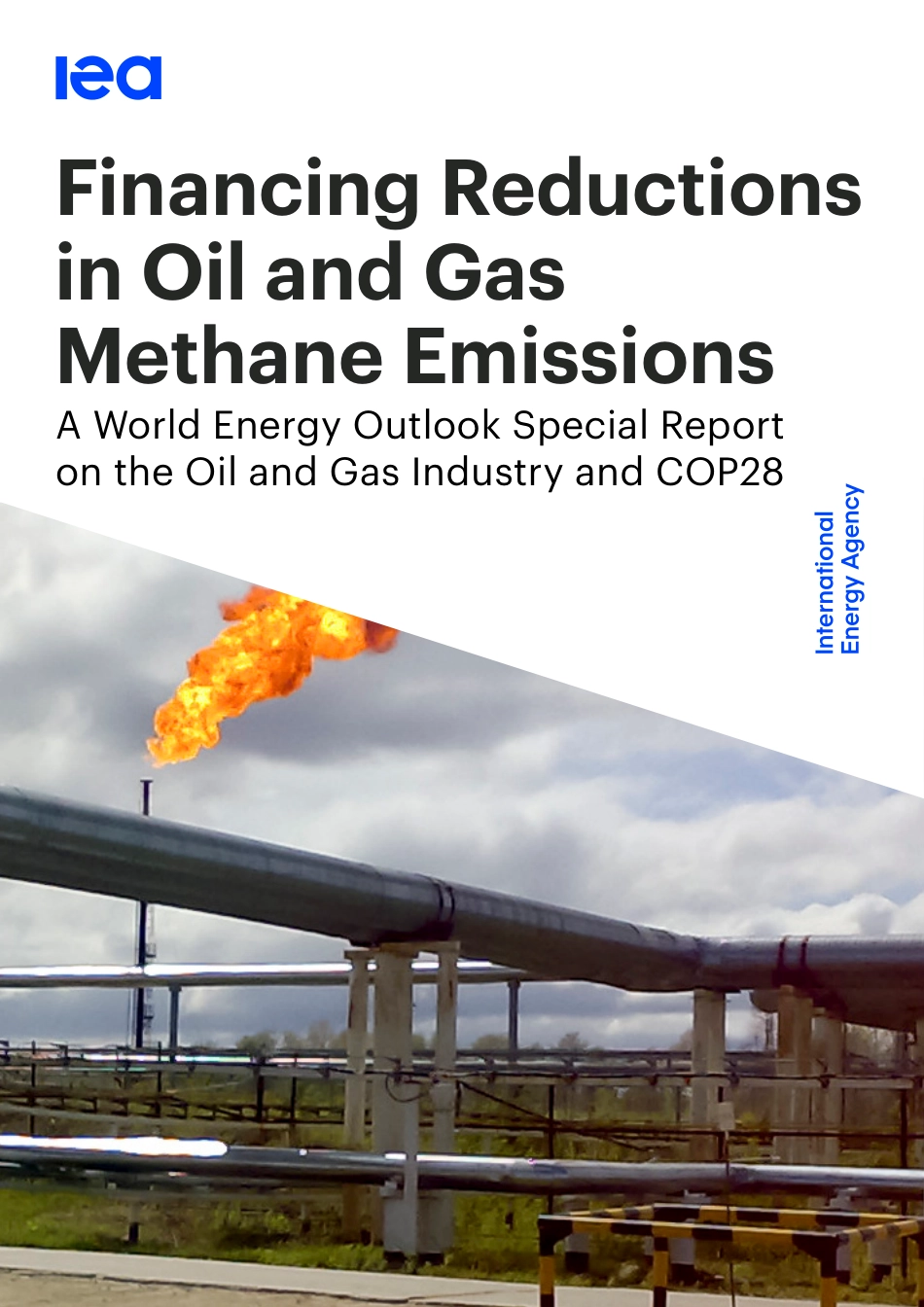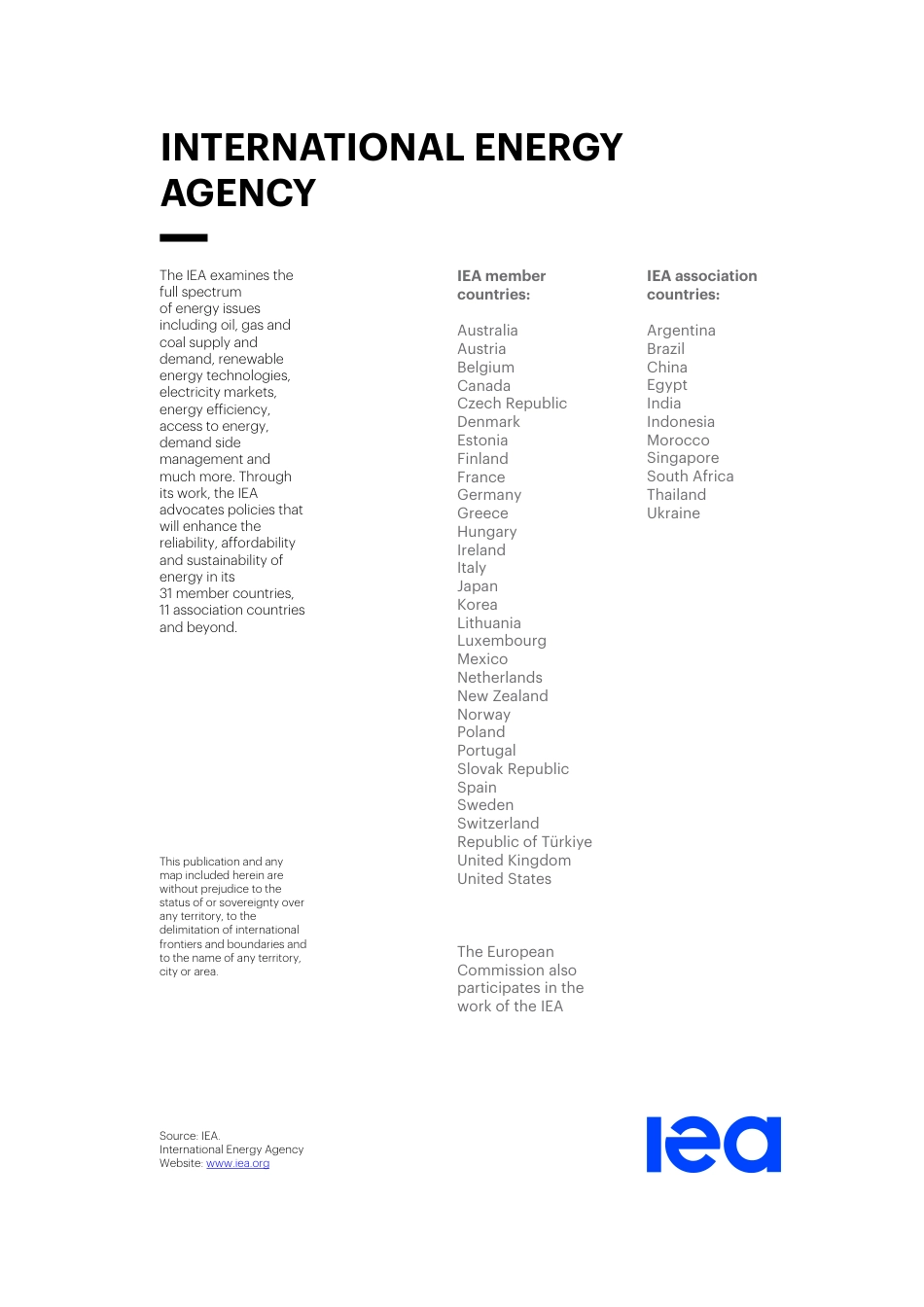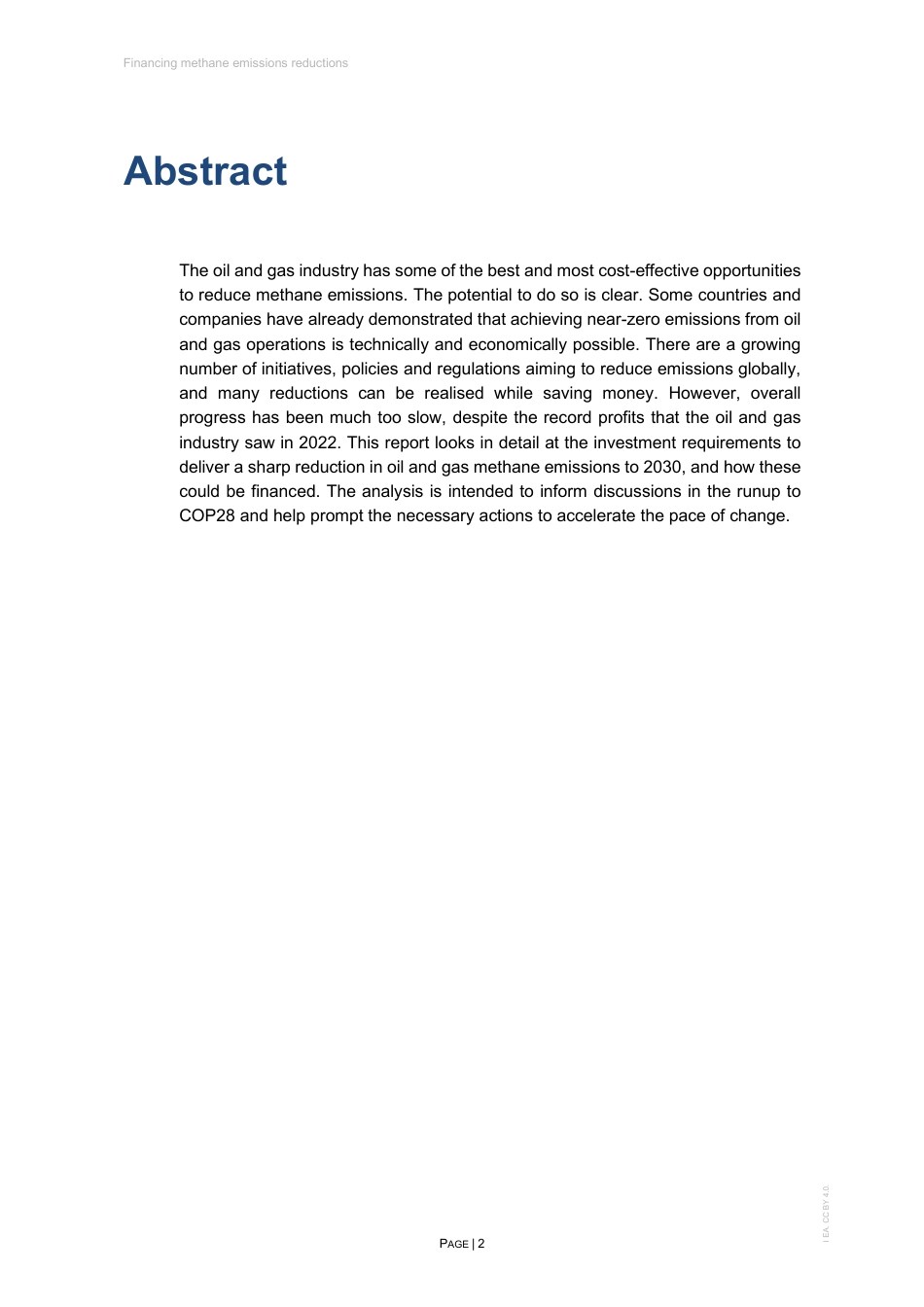Financing Reductions in Oil and Gas Methane EmissionsA World Energy Outlook Special Report on the Oil and Gas Industry and COP28The IEA examines the full spectrum of energy issues including oil, gas and coal supply and demand, renewable energy technologies, electricity markets, energy efficiency, access to energy, demand side management and much more. Through its work, the IEA advocates policies that will enhance the reliability, affordability and sustainability of energy in its 31 member countries, 11 association countries and beyond.This publication and any map included herein are without prejudice to the status of or sovereignty over any territory, to the delimitation of international frontiers and boundaries and to the name of any territory, city or area.Source: IEA. International Energy Agency Website: www.iea.orgIEA member countries: AustraliaAustriaBelgiumCanadaCzech RepublicDenmarkEstoniaFinlandFranceGermanyGreeceHungaryIrelandItalyJapanKoreaLithuaniaLuxembourgMexicoNetherlandsNew ZealandNorwayPolandPortugalSlovak RepublicSpainSwedenSwitzerlandRepublic of TürkiyeUnited KingdomUnited StatesThe European Commission also participates in the work of the IEAIEA association countries:ArgentinaBrazilChinaEgyptIndiaIndonesiaMoroccoSingaporeSouth AfricaThailandUkraineINTERNATIONAL ENERGYAGENCYFinancing methane emissions reductions PAGE | 2 I EA. CC BY 4.0. Abstract The oil and gas industry has some of the best and most cost-effective opportunities to reduce methane emissions. The potential to do so is clear. Some countries and companies have already demonstrated that achieving near-zero emissions from oil and gas operations is technically and economically possible. There are a growing number of initiatives, policies and regulations aiming to reduce em...



